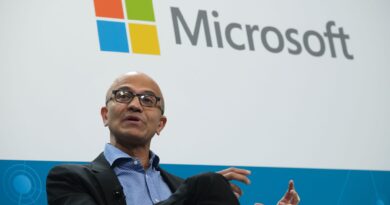Paycheck Protection Program goes from popular to pariah
The emergency funding flowing from a federal program that has distributed over $500 billion to small businesses affected by the coronavirus has slowed to a trickle. The volume of loans approved through the Small Business Administration’s Paycheck Protection Program dropped 84% last week, to an average of roughly 52,000 loans a day, according to new SBA data. The previous week, the program was averaging 442,000 loan approvals a day.
The sharp slowdown in PPP participation could offer another hurdle to the battered U.S. economy, where unemployment around the country has soared to nearly 15% — the highest rate since the Great Depression.
Banks have approved a total of $530 billion Paycheck loans, which provides small businesses with 500 or fewer workers with low-interest, forgivable loans. But more than 90% of that money was approved in the first three weeks of the program, with only $13 billion in loans earmarked for distribution last week.
Why demand for Paycheck loans is falling
Although the PPP has been plagued with processing delays, bankers said the decline in loan approvals has to do with falling demand rather than a technical issue. One big bank said that more than a quarter of its borrowers who initially applied for PPP loans have abandoned their applications.
At least some of those borrowers applied for PPP loans through multiple banks and pulled their applications from other lenders once a given bank approved them. Other borrowers who first thought they qualified for the program may have later determined they do not. According to bankers, some businesses also may have not properly documented their payroll, a key criterion in determining the size of a loan.
Another factor that could be deterring some borrowers: fear of government scrutiny. Because of loopholes in PPP rules, restaurant and hotel industry companies were allowed to borrow from the program despite having more than 500 employees. In mid-April, however, the Treasury Department issued new guidance clarifying that companies with other means of financing themselves, such as public companies with access to capital markets, were ineligible for Paycheck loans.
Although companies like Shake Shack and the owner of Ruth’s Chris Steak House ended up returning their PPP money, others continue to borrow. Last week, for example, restaurant chain Denny’s announced that franchisees that own more than half of its stores have received PPP loans, with more Denny’s restaurants still waiting for funds. And The One Group Hospitality, a publicly traded company that runs steak-house chain STK, disclosed on Friday it had received an $18 million Paycheck loan.
Michael Minnis, an accounting professor at the University of Chicago Booth School of Business, said demand for PPP loans may have peaked, noting the slowdown in lending. But another factor may be that some small businesses that qualify for help under the program now say they don’t want it.
Danny Schwartzman, the owner of Common Roots Cafe in Minneapolis, was approved for a more than $200,000 PPP loan, but decided not to accept it. The reason: Uncertainty over the criteria used to determine if a business qualifies for forgiveness under SBA rules, he said.
“For businesses like mine, there are so many unknowns with the federal programs. The question was always how will forgiveness work for a business like mine that is very severely impacted by this crisis,” Schwartzman said. “The expectation was they’ll figure it out and make the rules for forgiveness clear. But they didn’t, and everyone had a different perspective on how forgiveness would work.”
In a report released on Friday, the SBA’s inspector general faulted the agency for mandating that small businesses that receive aid must spend 75% of the funds on workers to qualify for forgiveness. That threshold is not stipulated in the Coronavirus Aid, Relief and Economic Security Act, which authorized the Paycheck programm, but was added after the fact by the SBA.
“Idiotic idea”
The IG report said most small businesses would struggle to meet that 75% level, meaning they would be on the hook for their PPP loans. Others have pointed to the rule, along with the fact that businesses have to spend the money immediately while the economy is still shut down, as a key reason why the Paycheck program hasn’t been more popular.
Schwartzman’s Common Roots Cafe and catering business had 45 employees before the coronavirus hit. In recent weeks, he has had to shut down most of his operations and is now down to just six employees.
“I knew there was no way our business would be up and running in large part by the end of June, which is the deadline for using the money and getting our staffing level back,” he said. “That’s impossible without making up stuff for people to do or paying people to stay home, which is an idiotic idea when they are making more on unemployment than they were before.”



